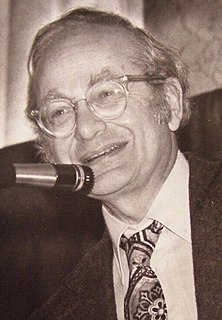A Quote by Francis Collins
The brain is the most complicated organ in the universe. We have learned a lot about other human organs. We know how the heart pumps and how the kidney does what it does. To a certain degree, we have read the letters of the human genome. But the brain has 100 billion neurons. Each one of those has about 10,000 connections.
Related Quotes
There are 100 billion neurons in the adult human brain, and each neuron makes something like 1,000 to 10,000 contacts with other neurons in the brain. Based on this, people have calculated that the number of permutations and combinations of brain activity exceeds the number of elementary particles in the universe.
The structure of the human brain is enormously complex. It contains about 10 billion nerve cells (neurons), which are interlinked in a vast network through 1,000 billion junctions (synapses). The whole brain can be divided into subsections, or sub-networks, which communicate with each other in a network fashion. All this results in intricate patterns of intertwined webs, networks of nesting within larger networks.
Unlike the heart or kidney, which have a small, defined set of cell types, we still do not have a taxonomy of neurons, and neuroscientists still argue whether specific types of neurons are unique to humans. But there is no disputing that neurons are only about 10 percent of the cells in the human brain.
The brain immediately confronts us with its great complexity. The human brain weighs only three to four pounds but contains about 100 billion neurons. Although that extraordinary number is of the same order of magnitude as the number of stars in the Milky Way, it cannot account for the complexity of the brain. The liver probably contains 100 million cells, but 1,000 livers do not add up to a rich inner life.
Ours is not a dumb species. We have put a man on the moon. We have unlocked the secrets of the human genome. We have discovered how to take stem cells and coax them into becoming brain cells, heart muscle, liver tissue - any organ of the human body that needs repair. These are our miracles, and there are more. Yet we have not yet found a way to do the simplest things: To live in peace. To stop killing each other when we disagree. To distribute that which is good in life freely and fairly.
The brain is really hard to see. The whole thing is very large - the human brain is several pounds in weight - but the connections between brain cells, known as synapses, are really tiny. They're nanoscale in dimension. So if you want to see how the cells of the brain are connected in networks, you have to see those connections, those synapses.
The brain is a tissue. It is a complicated, intricately woven tissue, like nothing else we know of in the universe, but it is composed of cells, as any tissue is. They are, to be sure, highly specialized cells, but they function according to the laws that govern any other cells. Their electrical and chemical signals can be detected, recorded and interpreted and their chemicals can be identified; the connections that constitute the brain's woven feltwork can be mapped. In short, the brain can be studied, just as the kidney can.
About the book of Job: If it were today, God might be asking "How does DNA carry traits? How are instincts passed on in animals? How does consciousness arise in the human body and brain, and what is consciousness? What is dark matter? How did the big bang happen? Why does the speed of light appear to be absolute? Is cold fusion possible? How do you program a TV remote control?
The last 100 years of research into the human brain...sees the brain as an organ that works by physical principles just like the other organs in the body...our emotions and higher callings, such as religion, as well as our grubby low-level physical systems like stereo vision and motor control, are products of a machine.
The human brain cannot release enough neurotransmitters to feel emotion a thousand times as strong as the grief of one funeral. A prospective risk going from 10,000,000 deaths to 100,000,000 deaths does not multiply by ten the strength of our determination to stop it. It adds one more zero on paper for our eyes to glaze over.
You know; when I look at the night sky and I see this enormous splendor of stars and galaxies, I sometimes ask the question, well how many worlds are we talking about? Well do the math, there are about 100 billion galaxies that are in the visible universe and each galaxy in turn contains about 100 billion stars, you multiply and you get about ten billion trillion stars. Well I think it is the height of arrogance to believe that we are alone in the universe, my attitude is that the universe is teaming, teaming with different kinds of life forms


































